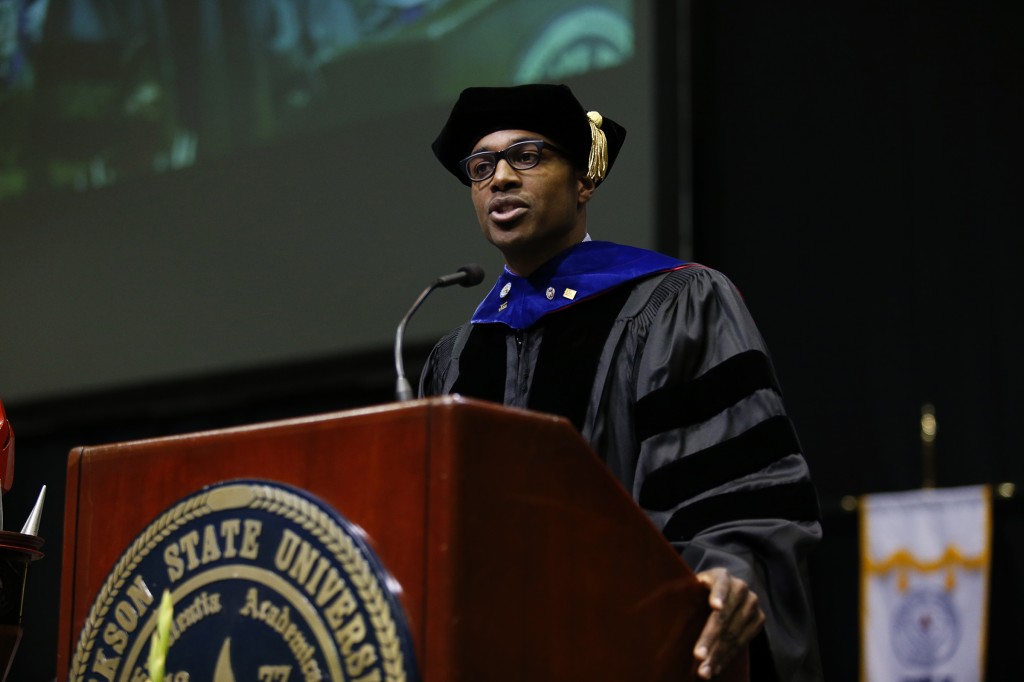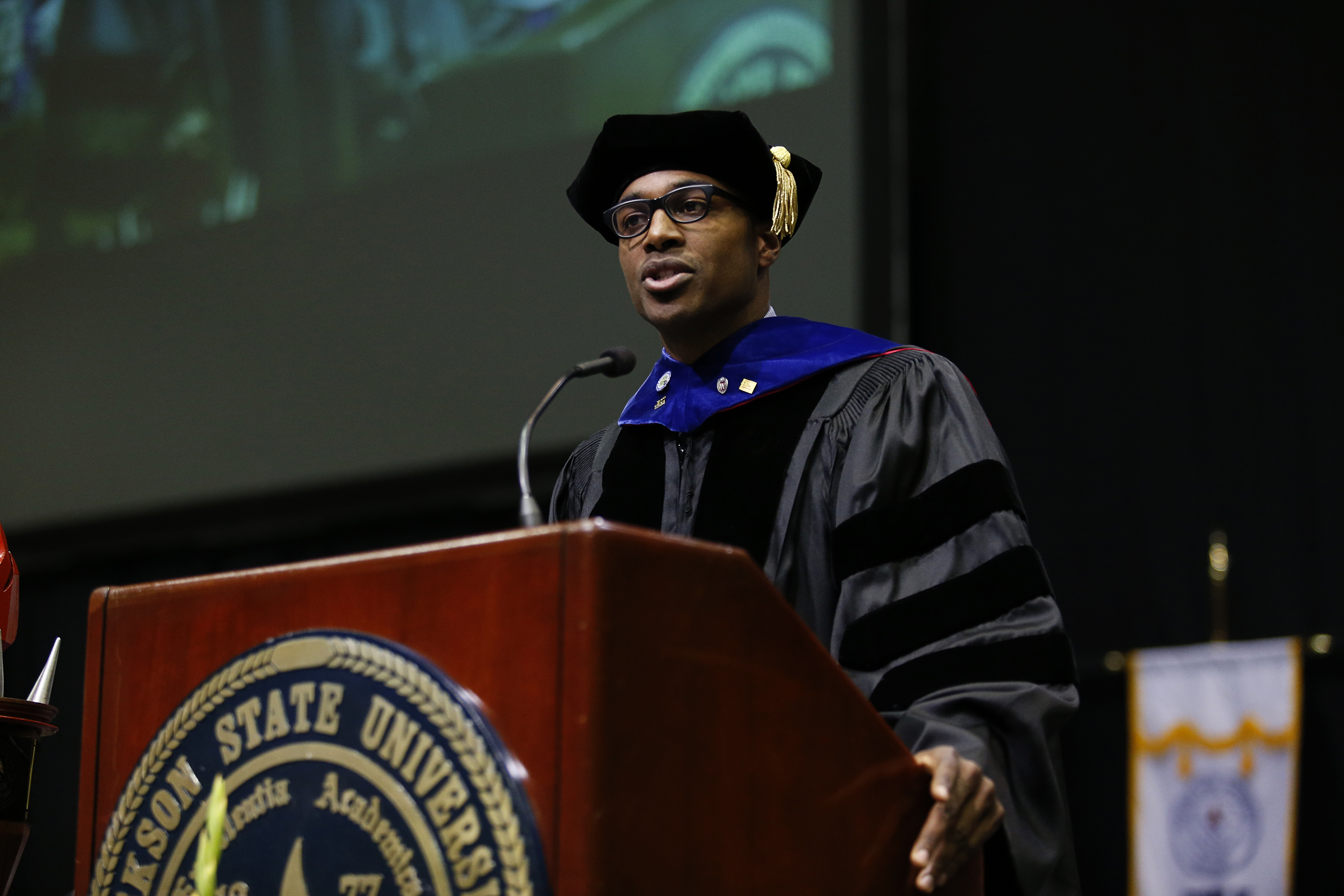
![]() A Jackson State University alum serving as a U.S. deputy assistant secretary of education urged honorees to make their degrees relevant as he delivered the graduate commencement address to nearly 350 students Friday evening inside the Athletic and Assembly Center.
A Jackson State University alum serving as a U.S. deputy assistant secretary of education urged honorees to make their degrees relevant as he delivered the graduate commencement address to nearly 350 students Friday evening inside the Athletic and Assembly Center.
Dr. James T. Minor, a scholar and policy expert in the Office of Postsecondary Education, warned that “you can drift with two degrees if you’re not careful, so you must be guided by a compass … have purpose, commitment and an unmatched work ethic.”
President Carolyn W. Meyers also factored in determination, telling the Class of 2016 that it “gives notice to the world that Jackson State develops people who offer the world hope for a better tomorrow.” She also commended the Golden Class of 1966 for “passing the torch of leadership and goodness from one generation to another.”
Leaders of the 21st century
Meyers said because of the contributions of faculty, staff and other key sources today’s graduates will be “the leaders of the rest of the 21st century.”
Minor said furthering his education allowed him to play an important role in the nation’s capital. Because a degree is not “an inanimate object,” what you decide to do with it matters, he said.
He told graduates to look toward the future for making a difference in the world, and he described the importance of education in stark detail. He said that only about 33 percent of Americans ages 25 or older have a bachelor’s degree, with that number being significantly fewer for African-Americans.
Minor then said the figure is even worse for African-American with advanced degrees, sharing that despite being about 12 percent of the U.S. population, only 8 percent of African-Americans have a master’s or Ph.D.
The educator said the dismal reality is also reflected in the nation’s minority-majority public schools, where black teachers are nearly non-existent. He said it’s even more alarming that while Mississippi annually has 26,000 graduates in public high schools (half of whom are African-Americans) only 3,000 took the Academic Placement exams last year. Minor also revealed that not a single African-American student in the state took an AP exam in computer science in 2015.
Although the statistics are dismal, he shared some good news by noting record-high college enrollment in the U.S. and the greatest percentage ever of high school graduates.
Still, he told JSU graduates, “There are plenty of spaces for you to insert yourself and your newly minted master’s degree or Ph.D. into this social landscape to deal with challenges and opportunities.”
JSU’s nurturing environment
The question becomes ‘what will you do?’ he asked.
The Detroit native said he pushed himself higher to excel. He was kicked out of his first high school and rejected by the college to which he first applied. Years later, however, that same institution hired him as a professor.
He said his successes resulted from building relationships, relying on mentors and remaining confident that “the degree I earned and experience I had at Jackson State were good enough.”
Concluding his address, Minor urged honorees to make their degrees consequential by developing their expertise and honing their knowledge to produce an outcome greater than themselves.
Before Meyers capped the evening by honoring the Golden Class of 1966 and presenting degrees to graduates, she conferred to Minor the university’s highest honor: Doctor of Humane Letters. “This presentation is in recognition of your leadership, service, achievements and inspiration,” she said.







